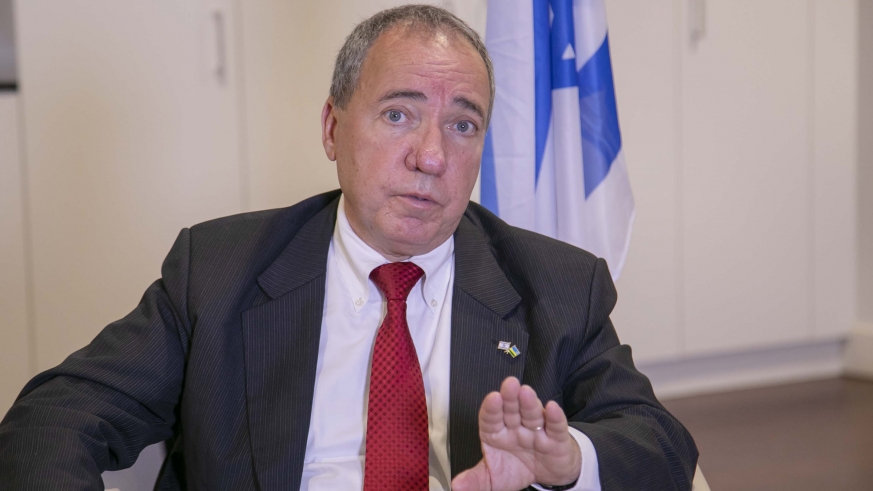IN THE MEDIA
Senior Israeli diplomat Yuval Rotem explains UAE triumph to AIJAC webinar
August 21, 2020 | AIJAC staff

August 20, 2020 by J-Wire Newsdesk
The latest guest for the Australia/Israel & Jewish Affairs Council (AIJAC) in its Live Online series of webinars was Yuval Rotem, the recently retired Director-General of Israel’s Ministry of Foreign Affairs and a former Ambassador to Australia, among many other senior roles.
With the normalisation agreement between Israel and the United Arab Emirates (UAE) just announced, Rotem explained that, with their main danger in the region now seen as Iran, some Arab states have been relaxing their previous hostility towards Israel, mostly under the table.
He described the agreement as the natural evolution of this process, but said at the same time we must remember it’s a historic event, pointing out that the New York Times writer Thomas Friedman called it a huge accomplishment and achievement.
Rotem added that it would be important to see how the rest of the Arab world reacts, but that it did show that the region was changing, as seen also by Binyamin Netanyahu’s public visit to Oman in 2018.
He explained that, since the Oslo Accords, the assumption has been that normalisation with the Arab world would only follow peace with the Palestinians. But the UAE deal was an example of “outside-in”, and is important because it has taken away from the Palestinians their veto on Israeli/Arab relations. It also disproved claims from many pundits that the 2018 moving of the US embassy to Jerusalem would undermine Israel’s position in the Middle East.
He also said he wouldn’t be surprised if there are further similar agreements, and added that he hoped it will lead to improved relations with other Muslim nations further afield and hopes to see some take more of a role in promoting Middle East peace.
Discussing Lebanon, he said he sees it as part of a long ongoing tragedy, all about its domination by a terrorist organisation, Hezbollah, a unified entity taking instruction from Iran. It is one result of Iran sowing instability through the region.
On US politics, he said that while Joe Biden and Trump may not agree on many things, they do agree that the Israel/UAE agreement is welcome, and overall, there is not much daylight between them on the question of Israel’s security. He said it’s important that Israeli policy towards the US stays bipartisan, and that US engagement in the Middle is critical and brings stability.
Asked about the highlights of his long career, he said he had served in the Foreign Minister’s office four times at different levels, under Shimon Peres, Ehud Barak, David Levy as Chief of Staff and Netanyahu, and had learnt great deal from each.
He said his most moving time had been his role in charge of the 75thanniversary of the liberation of Auschwitz early this year, welcoming so many heads of state to Israel, for many of whom it was the first-ever visit at that level from their country. It showed to him how far Israel has come since he started in the Foreign Ministry in 1985, when there were only three embassies in the whole of Africa, no relations with Eastern Europe and Egypt was the only country in the Arab world that had relations.
Regarding Australia, he said would also like to see the Australia/Israel relationship grow, and expressed hope that there would soon be direct flights and that this would help drive efforts to bring the two countries closer.
Tags: Israel, Middle East, UAE





